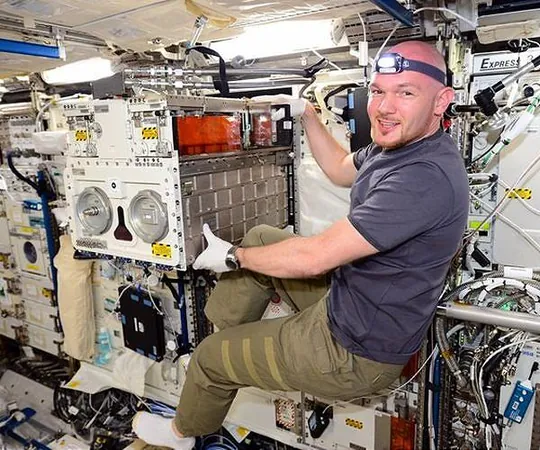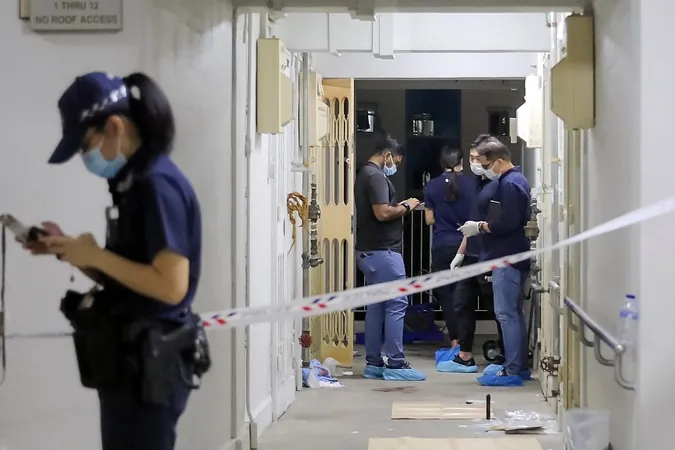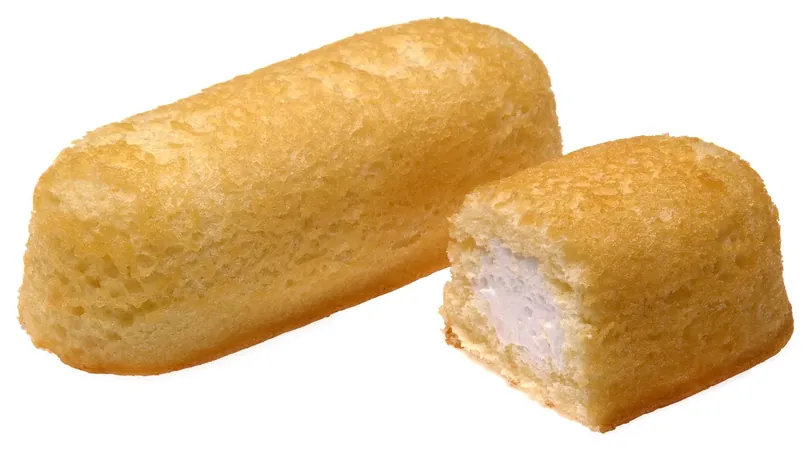
Young Scientist Explores Immune System in Space: How His Allergy Inspired a Journey to the Stars!
2024-11-01
Author: Mei
In a groundbreaking story that's inspiring a new generation of scientists, seventeen-year-old Malcolm O'Malley faced a life-altering health scare that would shape his future. One fateful day in the small town of Palmyra, Virginia, Malcolm and his mother anxiously awaited the results of his bloodwork. Earlier, he had experienced severe allergic reactions, culminating in a shocking diagnosis: a life-threatening allergy to shellfish. Just a year prior, he had relished shrimp dinners without a care in the world. This unexpected twist sparked curiosity about his immune system’s sudden changes and the limitations of existing treatments—epinephrine was the sole response to his condition, raising questions about its effectiveness.
Fast forward a few years, and that fervent curiosity motivated Malcolm to pursue a career in biomedical engineering. Today, as a Ph.D. student at the University of Virginia, he is working on the frontier of science as an intern with NASA's Space Biosciences Research Branch at Ames Research Center in California, where he investigates the intricate workings of the immune system in the unique environment of space.
Inspired by his experiences, O'Malley shifted his academic focus from computer science to biomedical engineering, driven by the profound impact his allergic reactions had on his life. Highlighting the crucial role of neutrophils—white blood cells that respond first to injury or infection—he explained, “The immune system is involved in everything. Anytime there's an injury or illness, it’s the immune response that kicks in first. These are the unsung heroes of our immune defense.”
During his ten-week internship in the summer of 2024, O'Malley utilized cutting-edge machine learning techniques to analyze vast datasets collected from previous NASA experiments. His focus? Understanding how gravity variations, social isolation, and radiation exposure during space missions affect human health. This research is vital as it pertains to upcoming missions to Mars and beyond.
“Imagine discovering how our immune system responds to these extraordinary conditions—it's exhilarating!” O'Malley exclaimed. He has positioned himself at the intersection of technology and biological sciences, leveraging statistical analysis to connect proteins to outcomes in inflammation that can affect spatial memory and motor function during radiation exposure.
His contributions during the internship have direct implications for NASA's Human Research Program, particularly related to the Artemis mission aimed at returning humans to the Moon, including the first woman and person of color. O'Malley feels a profound sense of pride in being part of this historic effort. “It’s a crazy thought to imagine that someone with a background like mine could be part of humanity's next giant leap into space," he reflected.
In addition to his pioneering research, O'Malley has embraced life outside the lab. He has learned to ride a bike, ventured into surfing, and engaged in sports like volleyball and water polo. Moreover, he shares his passion for science by delivering guest lectures at local high schools, hoping to inspire the next generation of innovators.
Looking ahead, O'Malley is excited about the potential applications of his research. He envisions harnessing the unique immune properties of various species to achieve advancements in regenerative medicine, revolutionize cancer treatment, and develop potent antimicrobial therapies. “By tapping into the novel immune features found in other species, we can turn what feels like science fiction into our reality,” he affirmed.
Malcolm O'Malley's story is not just about conquering allergies; it’s about inspiring change in the scientific landscape and pushing the boundaries of human exploration. As he continues his journey, one thing is certain—his contributions to our understanding of the immune system could ultimately lead humanity to new worlds.



 Brasil (PT)
Brasil (PT)
 Canada (EN)
Canada (EN)
 Chile (ES)
Chile (ES)
 España (ES)
España (ES)
 France (FR)
France (FR)
 Hong Kong (EN)
Hong Kong (EN)
 Italia (IT)
Italia (IT)
 日本 (JA)
日本 (JA)
 Magyarország (HU)
Magyarország (HU)
 Norge (NO)
Norge (NO)
 Polska (PL)
Polska (PL)
 Schweiz (DE)
Schweiz (DE)
 Singapore (EN)
Singapore (EN)
 Sverige (SV)
Sverige (SV)
 Suomi (FI)
Suomi (FI)
 Türkiye (TR)
Türkiye (TR)